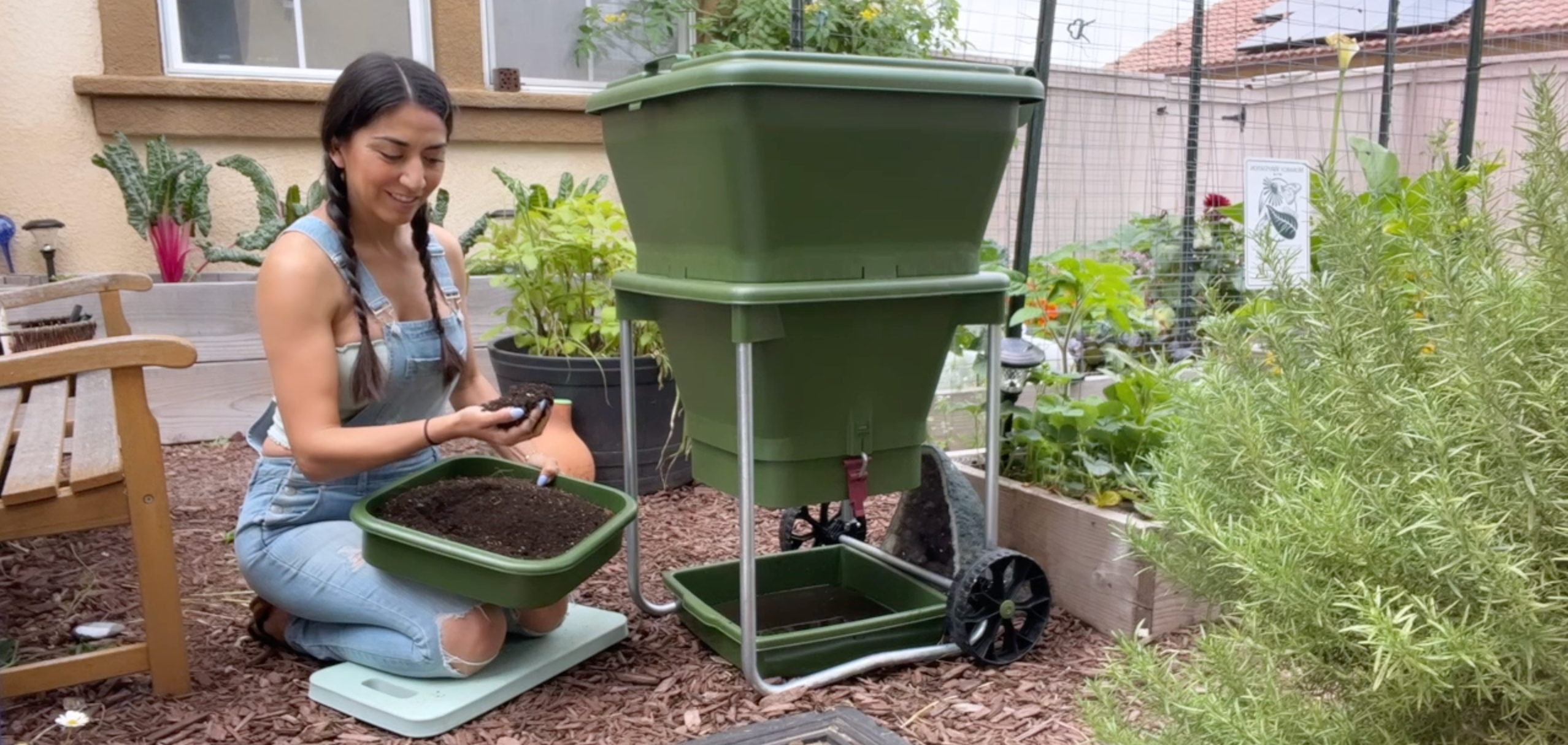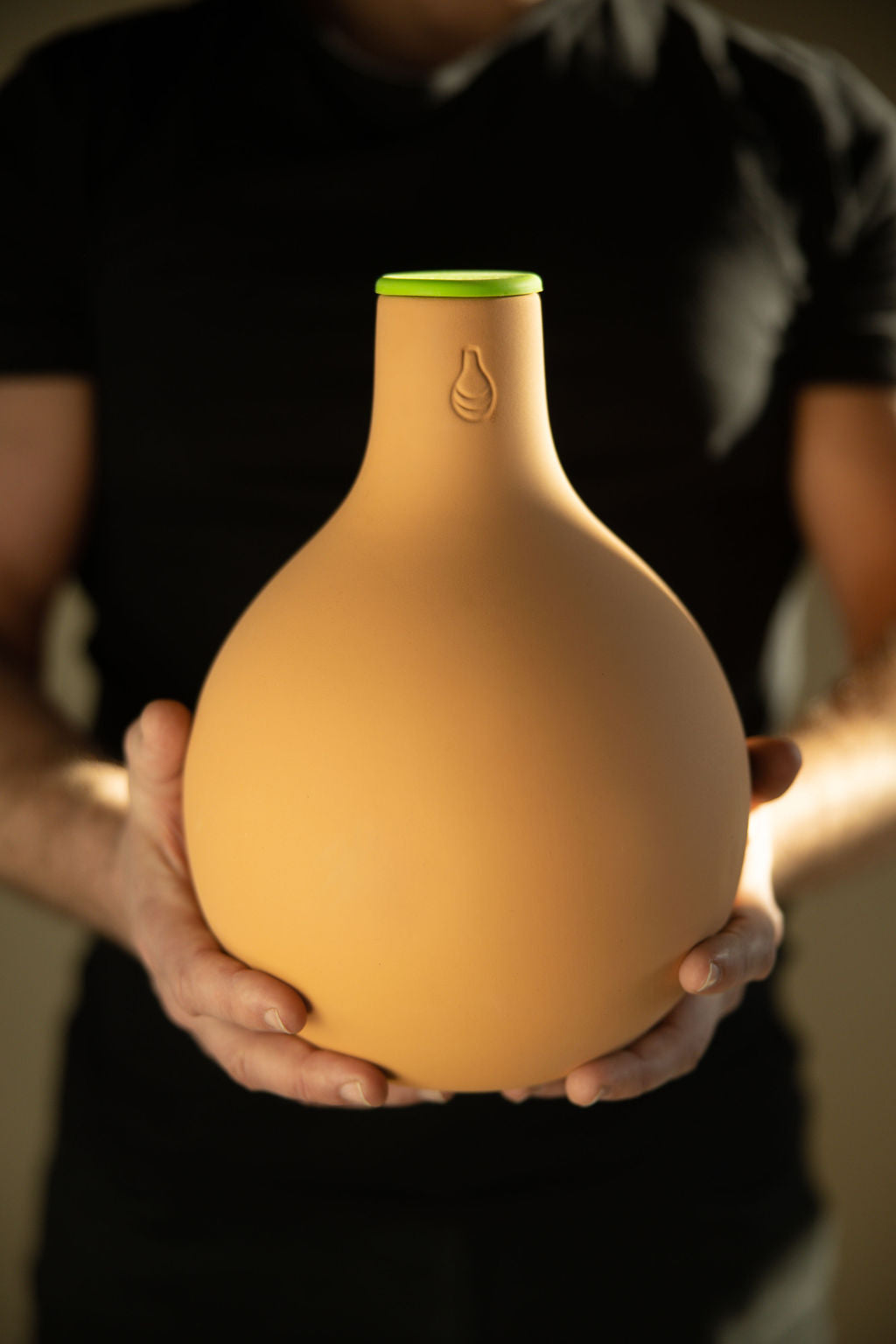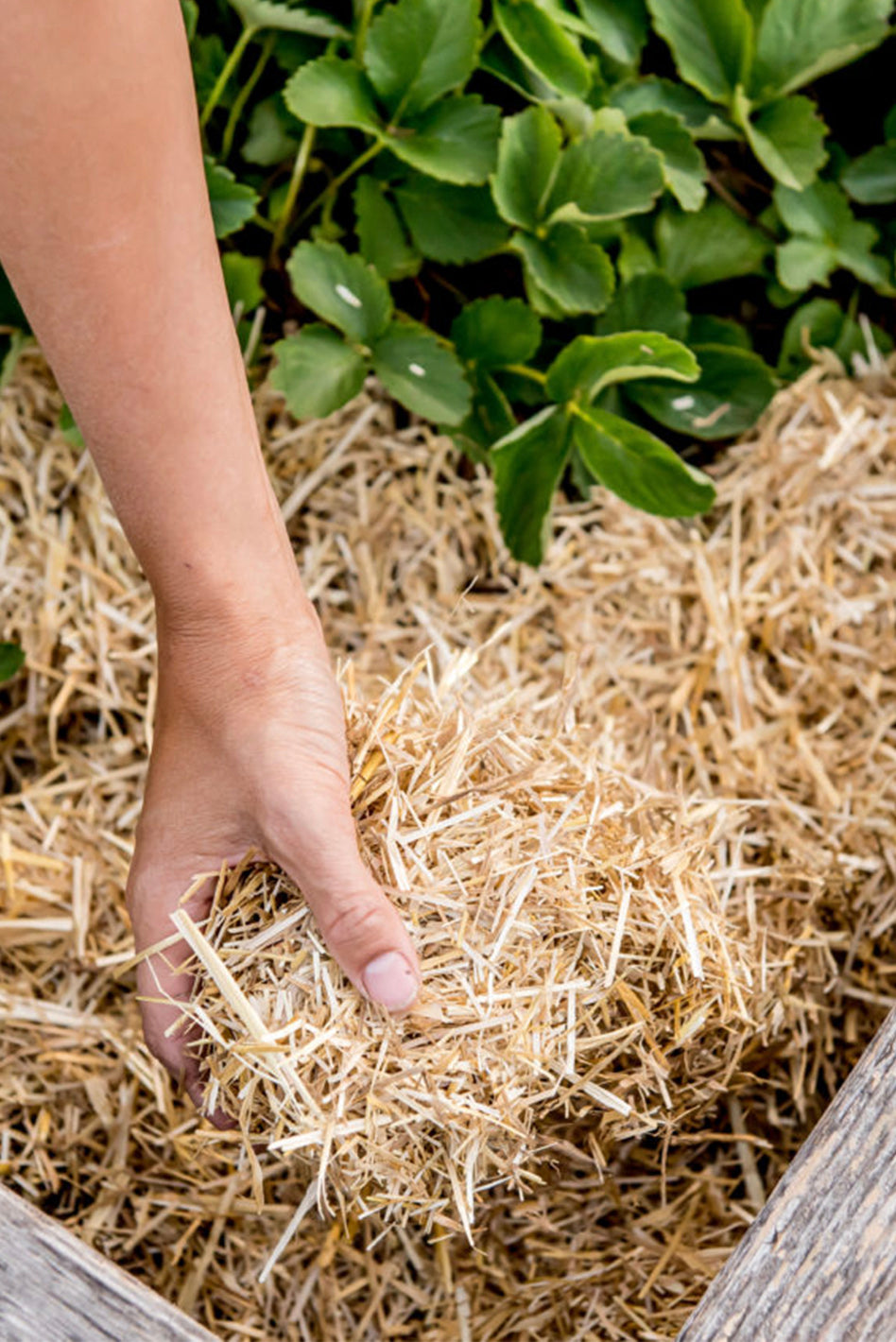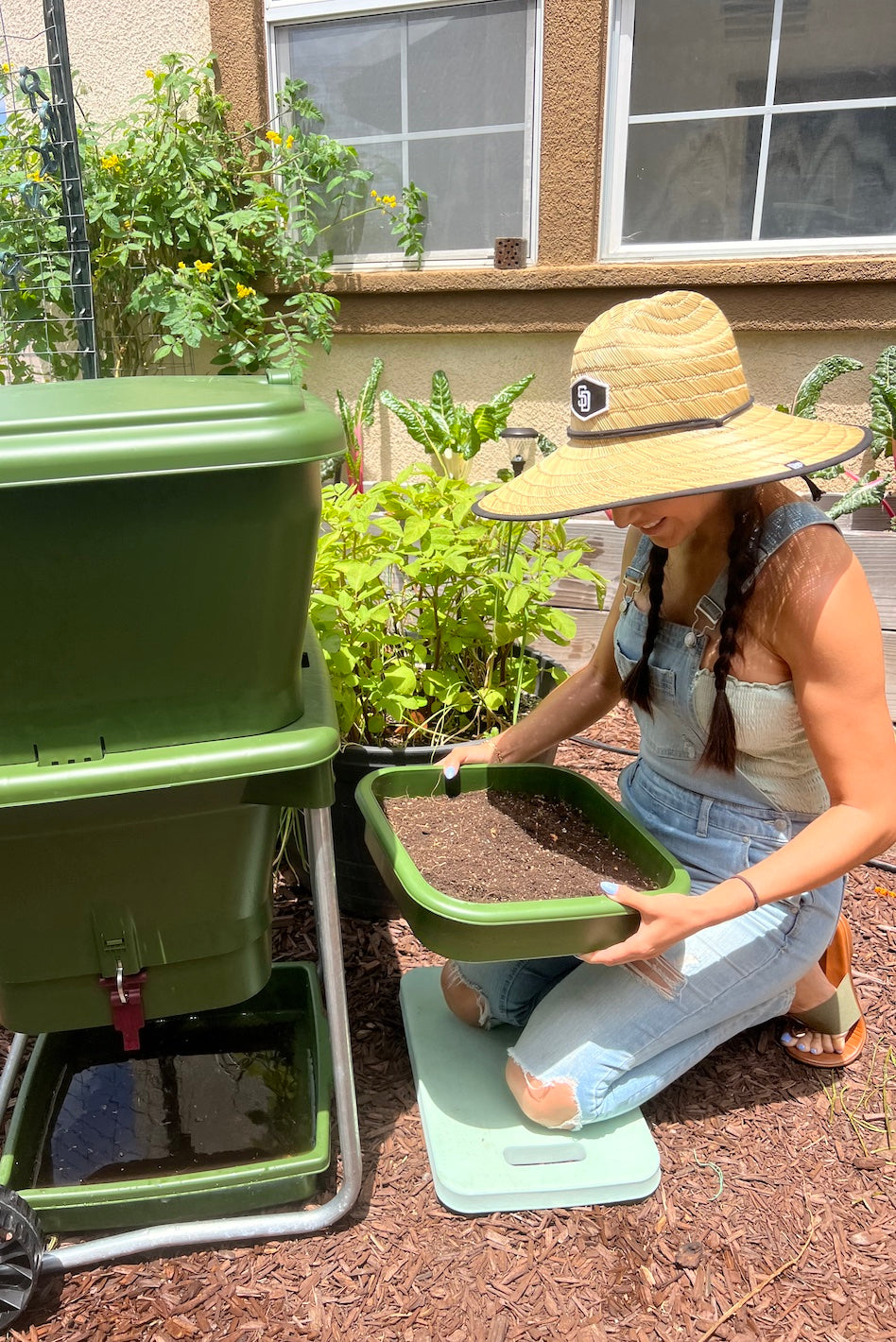
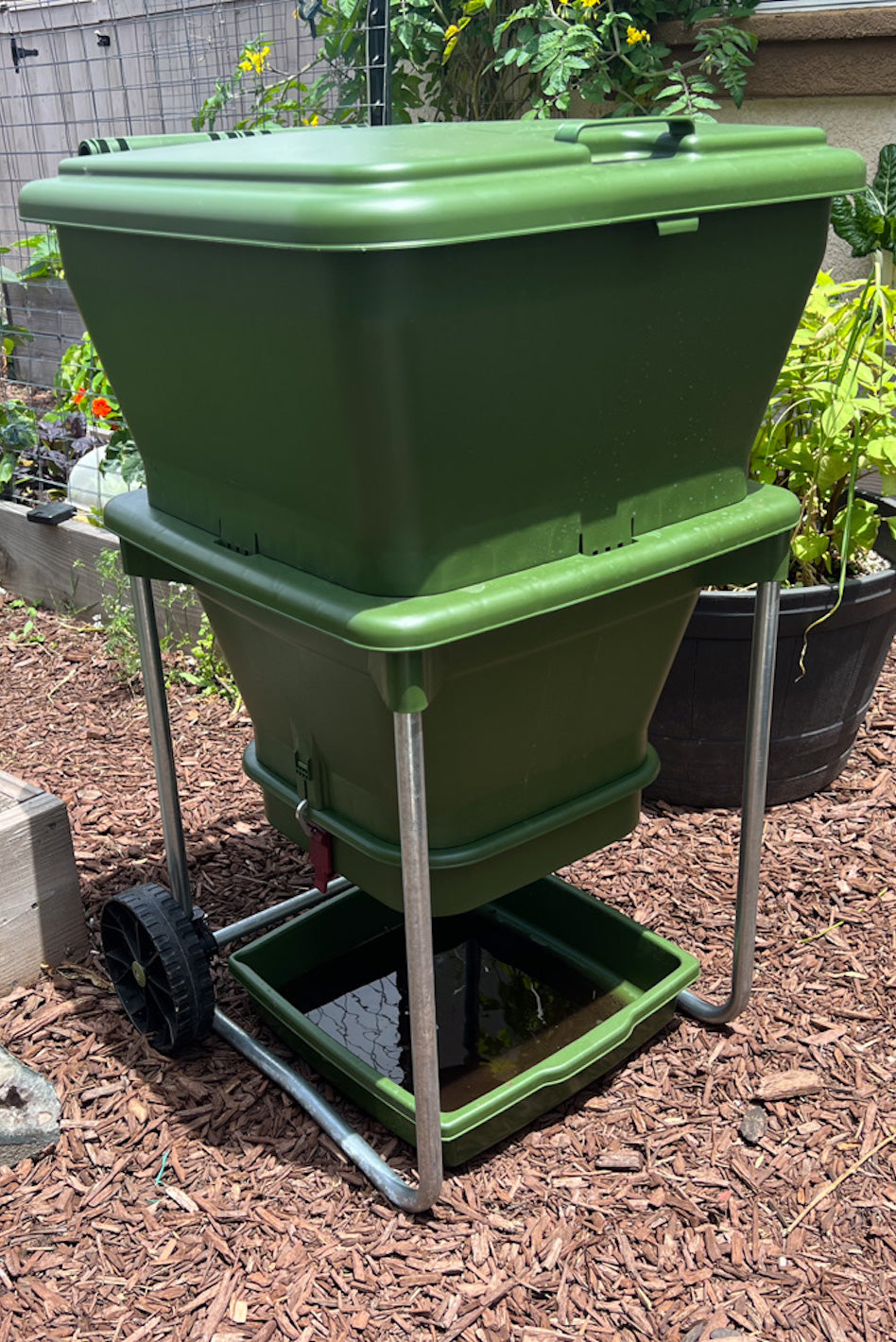
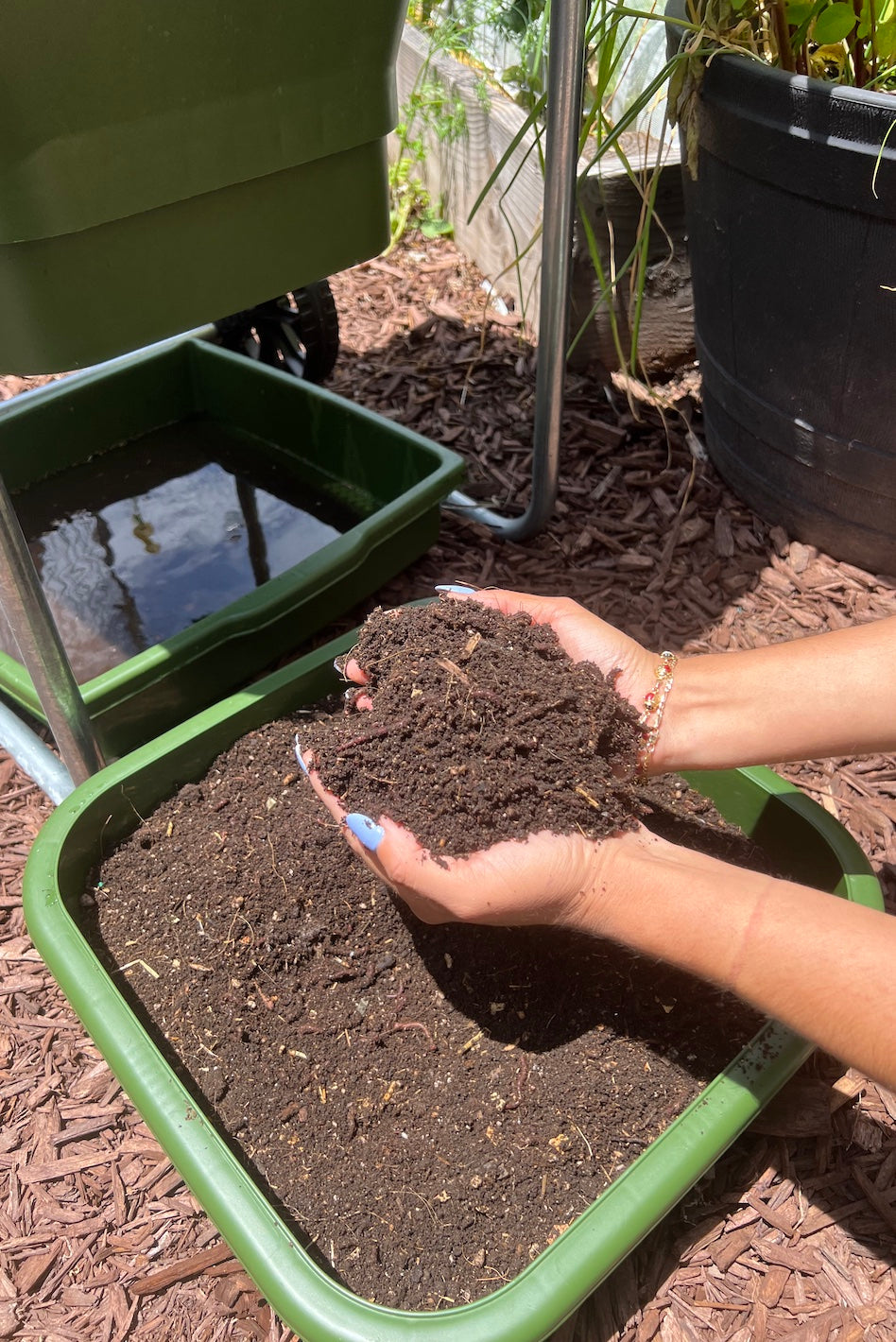
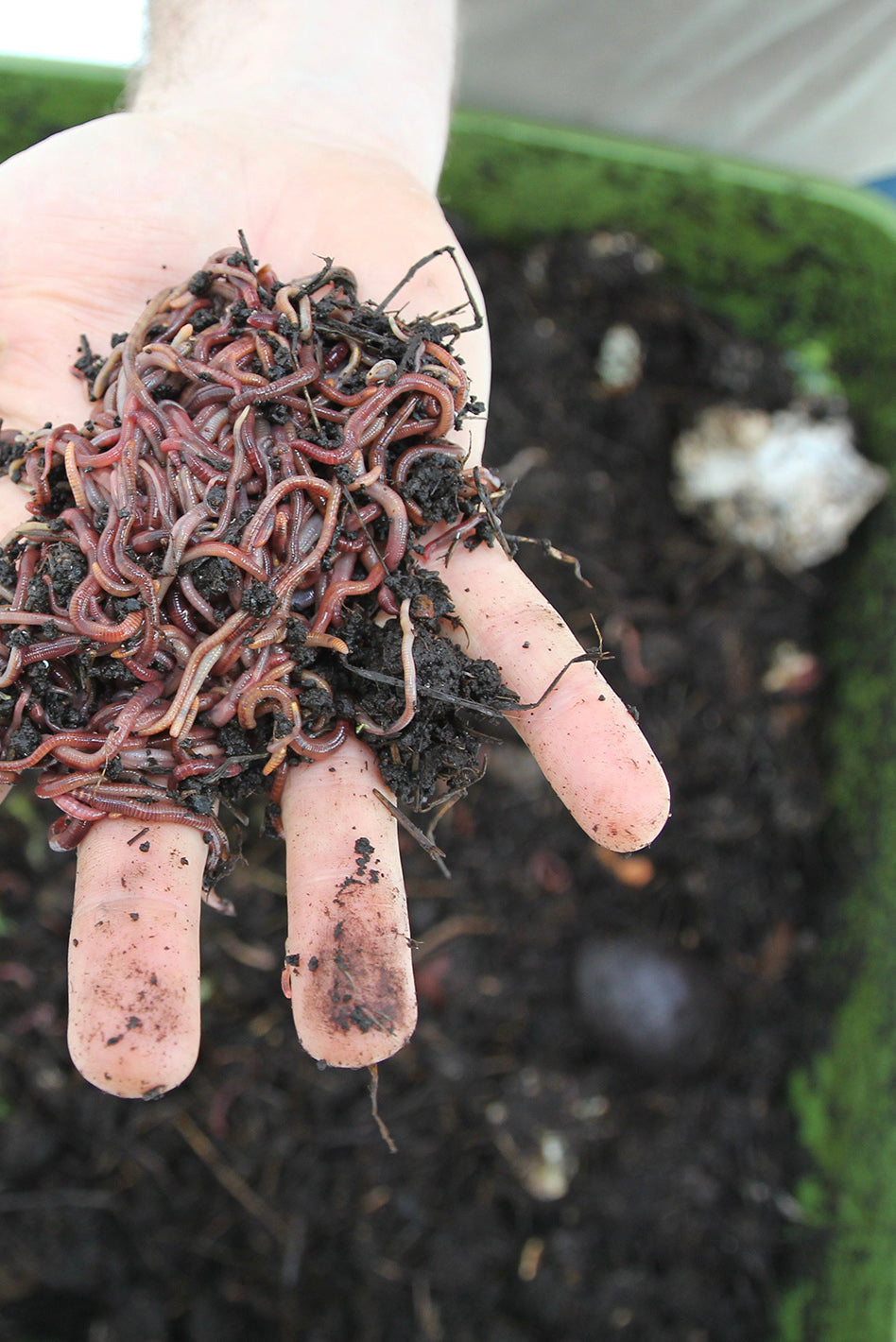
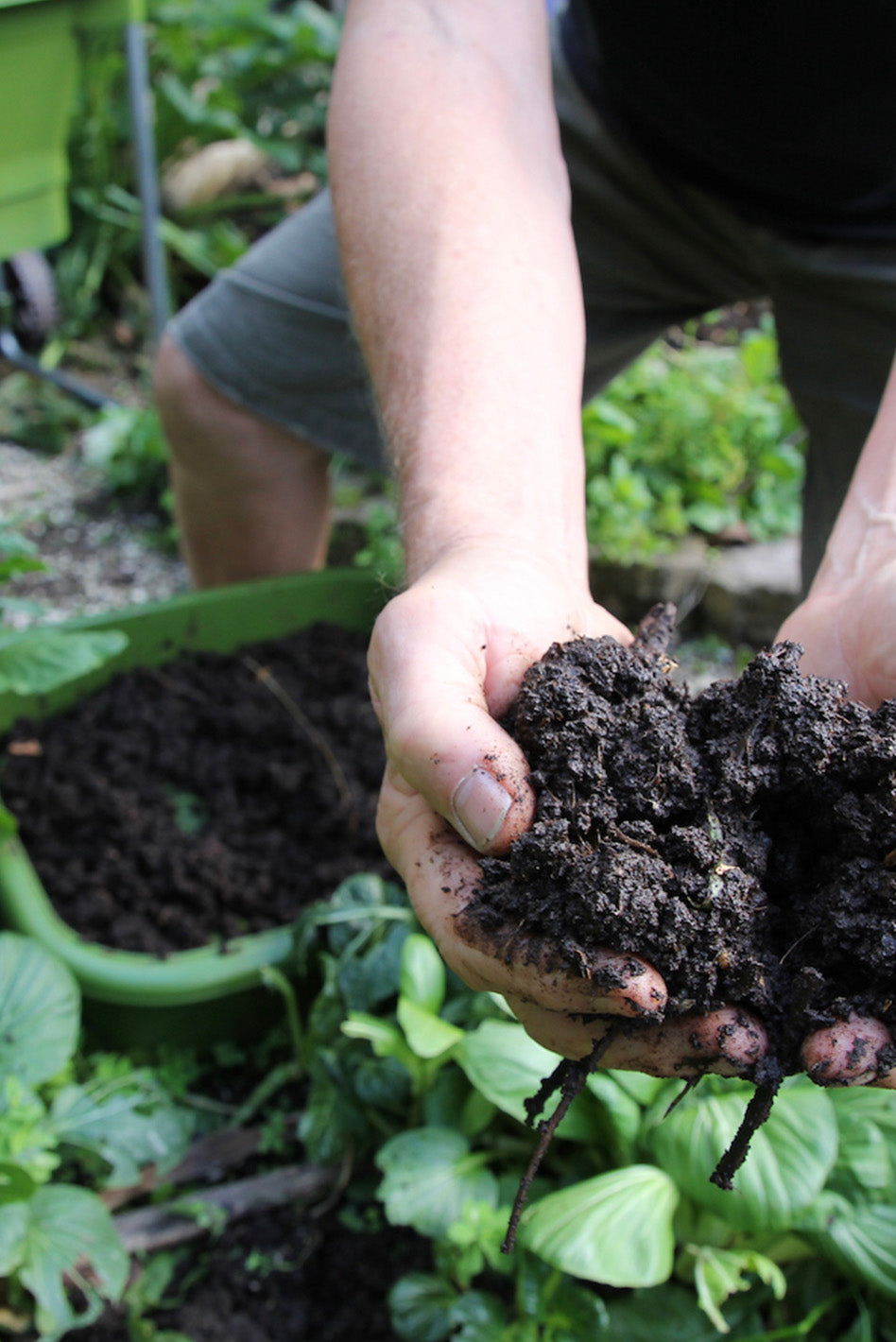
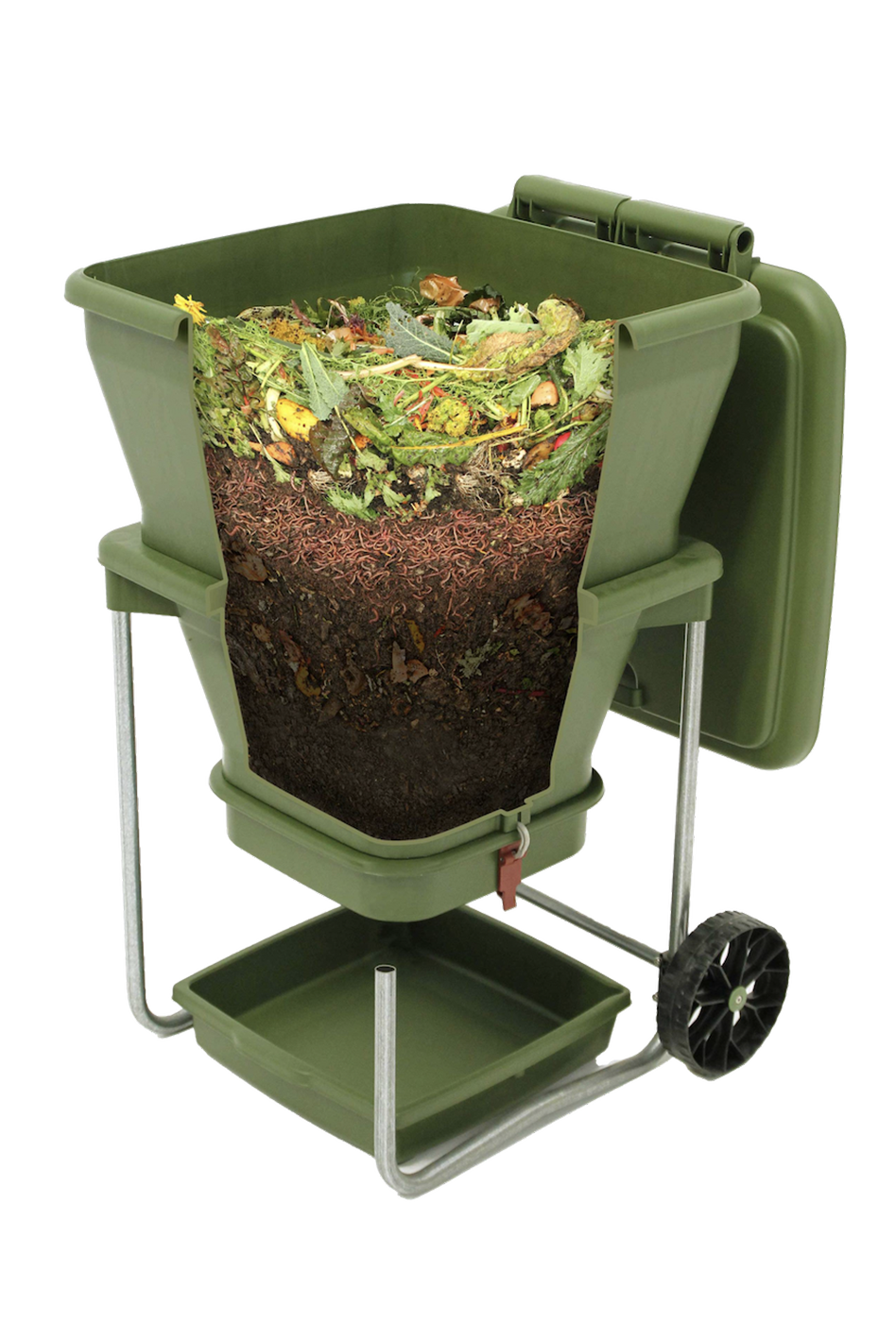
Hungry Bin Composter
Free Shipping on the Hungry Bin
The economic and environmental impact of organic waste is significant, as compostable waste can account for more than 50% of the waste stream.
The Hungry Bin composter offers an innovative solution to avoid these costs, allowing anyone to process organic waste on-site without the need to transport and contribute to this waste stream.
In addition you are now able to harvest and use the incredible worm castings, the bi-product of broken down food scraps. This is considered "black gold" and some of the most nutrient dense addition to any soil!
Make sure you add worms to your cart as well (unless you want to catch 1,000 worms)!

This product has no reviews yet.
Hungry Bin Results
The Hungry Bin is an exceptional worm composting system. Inside, worms are able to turn organic waste into worm castings and a nutrient-rich liquid, creating the highest-quality, natural fertilizer for your garden.
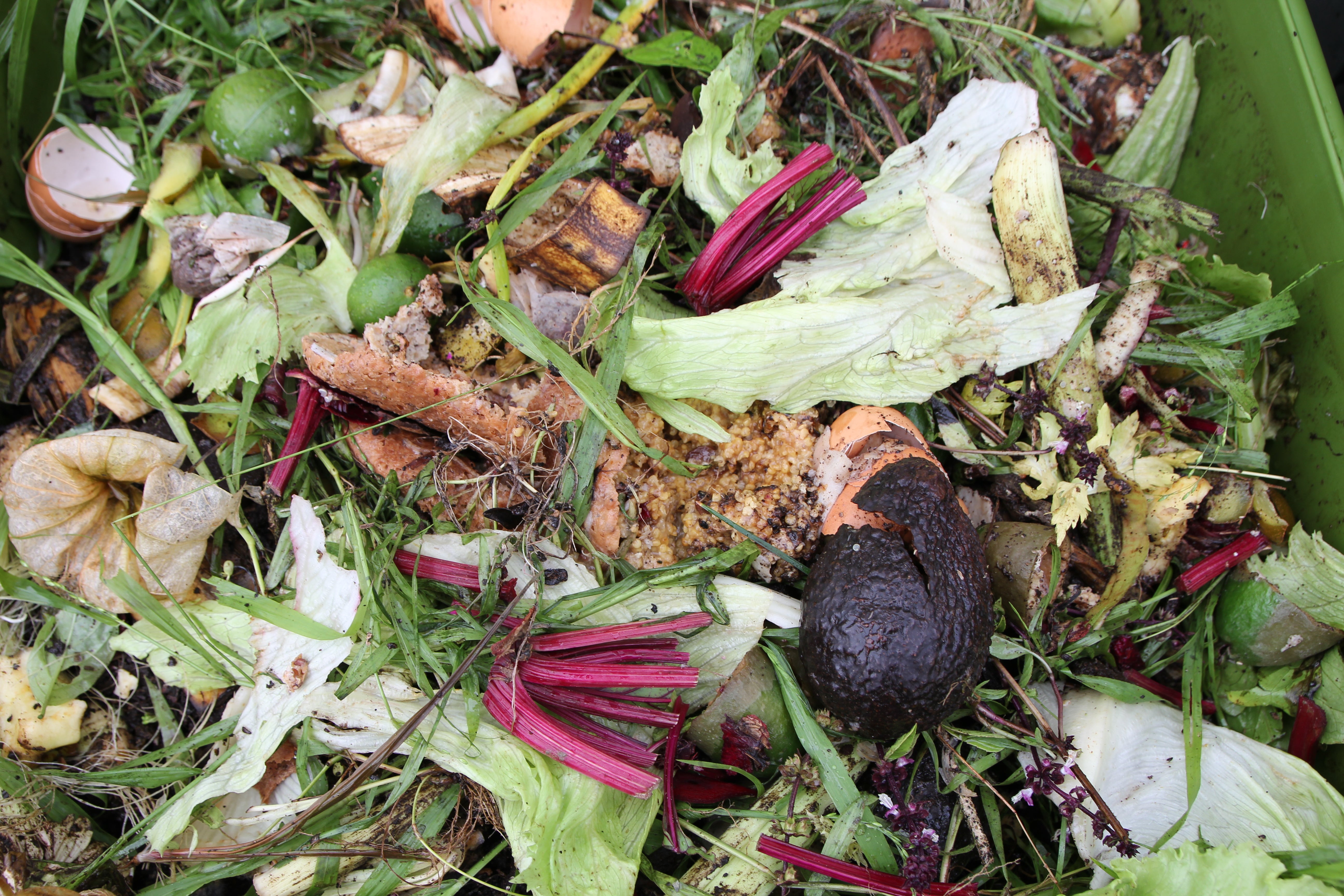
Recycles Organic Waste
The Hungry Bin can process 4 lbs of organic waste per day.
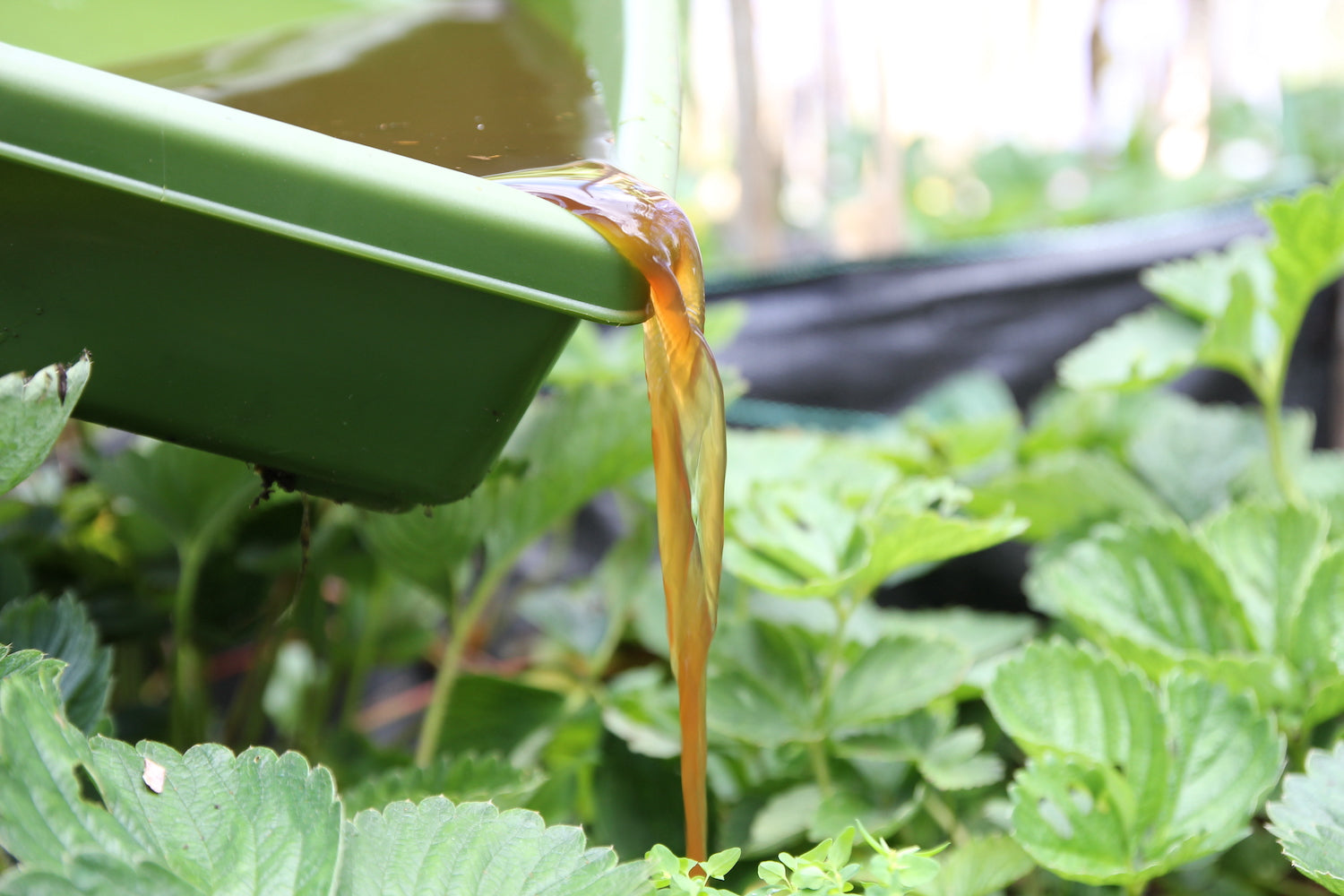
Saves Money
No more buying fertilizer. The hungry bin provides worm castings every 2-4 months and up to a litre of worm tea every week.
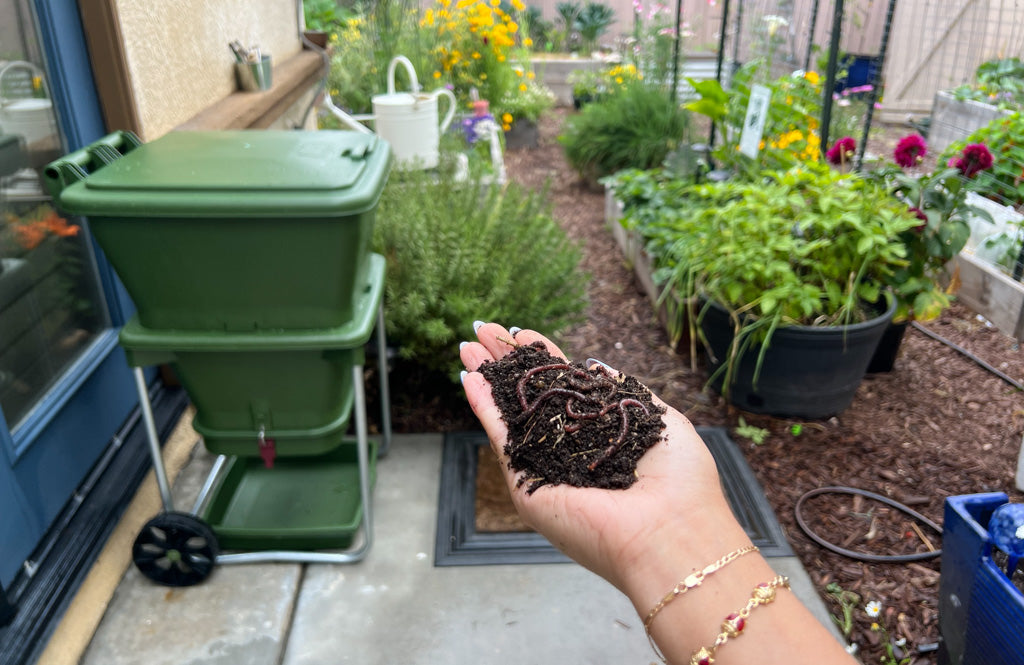
Nothing To Hook-up
No power, water or sewage connection is needed. It's perfect for along the side of the house, the garage, or even the apartment rooftop.
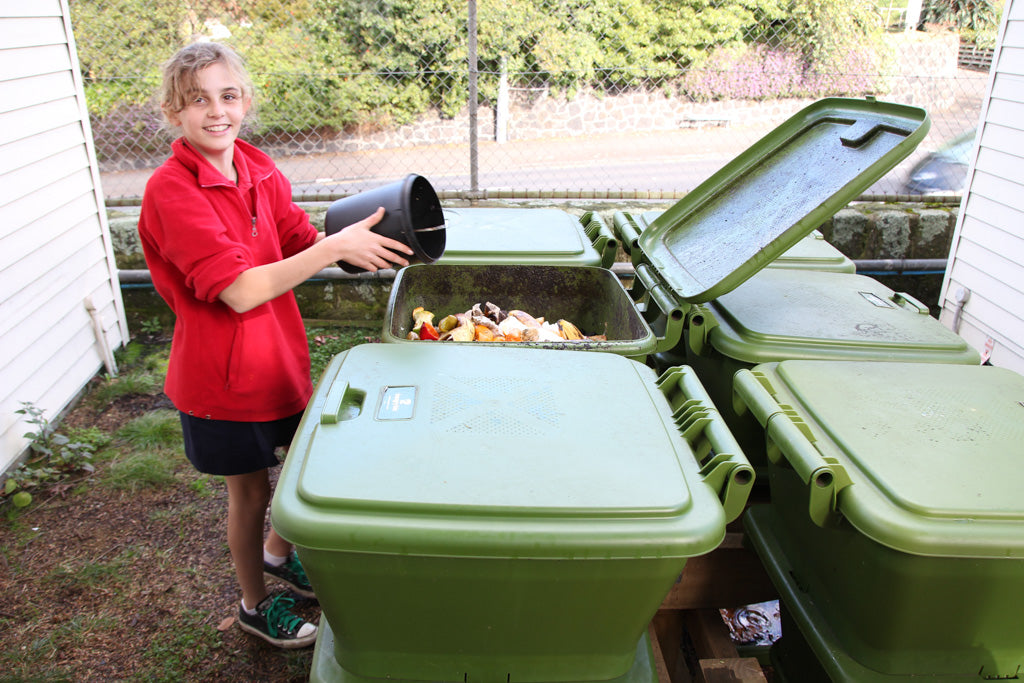
Filling Your Bin
Place moist bedding material in the bin. For best results, place at least 21 gallons of bedding (3/4 Full) into the bin. This is the equivalent of two bags of compost or potting mix. Moisten bedding until it is as wet as a wrung-out sponge.
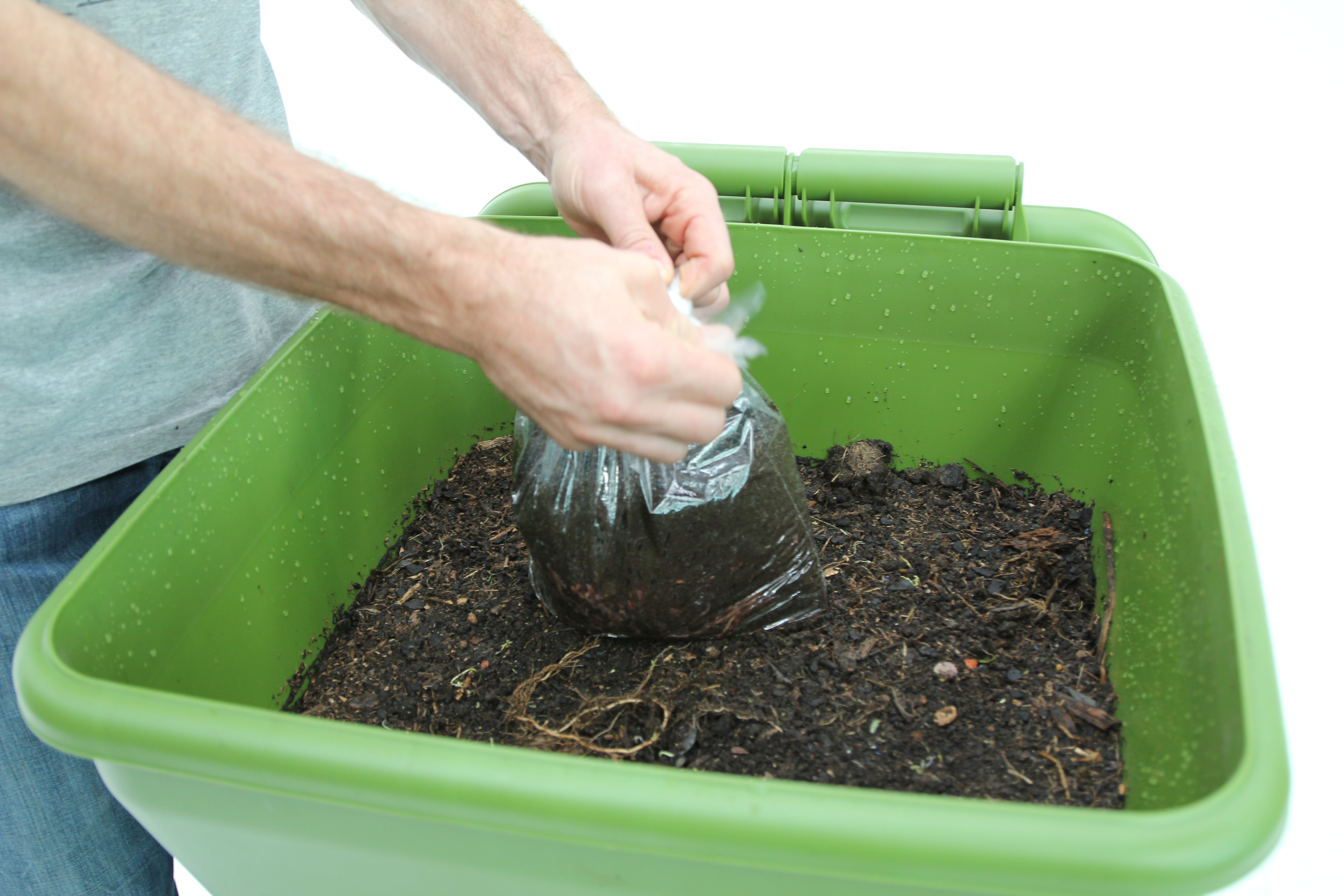
Adding Worms
Add the worms to the top of the bedding material and cover with approximately 1 inch of food scraps (preferably finely chopped). Starting with approximately 2000 adult worms is a good number to start your bin. However, the more worms you start with the faster the bin will reach maximum capacity. A full population is approximately 16,000 worms, or 6.5 lbs of adult worms.

Best Location
Choose a sheltered, shady spot for the hungry bin – the ideal temperature is between 60-85°F (15-25°C). Avoid extremes of temperature, particularly full sun in summer, as temperatures over 95°F (35°C) may kill the worms. The bin can be kept on a balcony or in a garage or basement if you don’t have a garden. If the bin is outdoors in winter, make sure it is not subjected to freezing conditions for extended periods of time.
Frequently Asked Questions:
Why should I compost?
1. Composting can help improve soil health and fertility, which can lead to healthier plants and gardens.
2. Composting can help reduce the need for chemical fertilizers, which can be harmful to the environment.
3. Composting can help conserve water, as compost helps retain moisture in the soil.
4. Composting helps reduce the amount of waste sent to landfills, which can help reduce greenhouse gas emissions.
What are compost worms?
Compost worms are different from common garden worms that live in soil.
Unlike earthworms, compost worms do not make burrows in the soil but live in the surface layer (the top 30cm or 12in). They have evolved to eat rotting plant matter on the forest floor and are perfectly suited to break down organic waste. Compost worms are generally smaller than earthworms.
Should I add water?
Generally, you should not need to add water to the hungry bin. Food scraps have a high water content, which helps keep the bin moist. The design lets excess water drain from the bin but ensures enough moisture is retained to maintain optimal conditions. The worms do need to be moist, though, so if the bin has dried out, sprinkle a little water on the top of the bin. If you have added dry matter like shredded paper, you may also need to add water. Take care not to drown the worms; the top should only be as wet as a wrung-out sponge.
How much liquid should my bin produce?
The bin will produce about half a litre (one pint) of liquid daily when it has a full worm population and is fed regularly. It is important that the liquid is free to drain from the bin at all times.
If the liquid from your bin is not collecting in the drip tray, it may be too dry. See - Should I add water? above. The filter tray may also have become blocked with paper or plastic if this has been placed in the bin. Remove the floor and check the filter.
Check that the bin is not exposed to intense sun for long periods and move to a shadier spot if necessary.
The liquid fertilizer should be mixed 1 part with 10 parts water before being sprinkled onto the soil around plants.
Why is there no juice yet?
If you have started your hungry bin with commercial compost mix or potting mix, it can take a while for the compost to become fully saturated and the liquid to start running from the hungry bin. You can help the process by sprinkling a little water from a watering can slowly over a couple of days until there is juice draining from the hungry bin.
Why are my worms clustered at the lid?
Sometimes worms will cluster at the top of the bin, and on the underside of the lid if it is about to rain. This is a natural response to prevent them from drowning in the wild or migrating to fresh food when the ground is wet. They will return down into the surface layer when the rain has passed.
If the conditions in the bin are unfavourable, the worms will also try to migrate. This is usually caused by overfeeding or if the food has become too acidic. However, if you keep the lid on as recommended, it is almost impossible for them to escape. Occasionally a worm may fall from the bin into the drip tray, especially if castings have recently been removed.
If the food is too wet, the worms will look fat and pale. Try adding some dry leaves or shredded paper and gently use a fork to turn the top layer and create some drain holes on the surface.
If heavy rain floods your bin, move it to a more sheltered location.
Yay I'm going on a holiday!
The hungry bin can be left for two to four weeks without fresh food. Adding shredded paper, dead leaves or dry lawn clippings to the food a week or two before you go away helps the food last longer. Water any dry material you add to your hungry bin to ensure the bin doesn't dry out while you are away.
If you are going away for a month or two, it’s no problem either. All you need to do is alternate layers of leaves, dried grass clippings, and shredded paper with alternate layers of food scraps. 30 cm will last a couple of months without too many problems. If you are away longer, you may need to ask a friend to feed your farm while you are away.
Why do I have fruit flies?
The food scraps you have placed into your hungry bin are very attractive to a host of other critters, not just worms. Normally this is not a problem, but in the warmer months, fruit flies can be an issue. This is especially true if you are eating a lot of fruit like kiwi fruit or bananas, which have high sugar levels. The best way to reduce the fruit flies present in your hungry bin is to ensure that you are adding enough fibre to balance the acidity and to cover the food with a layer of newspaper or leaves each time you feed your hungry bin. Sprinkling some dolomite lime on top of the food will also help reduce the acidity that is attracting the fruit flies.
The level in the bin has dropped!
If the level in your hungry bin has dropped, don't worry. It's an easy problem to solve. Just add some soil or finished compost each time you feed the hungry bin.

